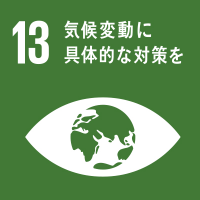What is environmentally-friendly ink?
"Environmental" products include ink that reduces carbon dioxide emissions and contributes to the realization of a "low-carbon society," and ink that is produced by extracting ingredients from biological resources (biomass) and contributes to the creation of a recycling-oriented society. Introducing inks that reduce negative effects on the human body and contribute to society and the environment.
Generally, "renewable organic resources derived from living things, excluding fossil resources" are called biomass.
Biomass ink is an ink manufactured by extracting ingredients from biological resources (biomass) such as cotton, pulp, rice bran, vegetable oil, and angiosperm seeds.
The content of biomass components (dry weight ratio) of 10% or more is certified as biomass ink, and the Japan Organic Resources Association has certified the biomass mark by examining not only the biomass content but also the safety and security as an environmental product. I am doing
Biomass inks are mainly used in gravure printing, flexo printing, and offset printing.
Product Info
Items corresponding to SDGs goals
By procuring sustainable biomass raw materials, we contribute to the protection of terrestrial ecosystems and the promotion of sustainable use, and also contribute to increasing farmers' incomes.









Non-VOC ink is an ink that contains less than 1% of the high-boiling point petroleum solvent in its constituent components by replacing it with vegetable oil.
Vegetable oils include soybean oil, flaxseed oil, tung oil, coconut oil, and rice bran oil.
This is an environmentally friendly ink that is more advanced than conventional vegetable oil inks and is mainly used in offset printing (sheet-fed).

Non-VOC ink mark
Items corresponding to SDGs goals
Reducing the VOC content in ink will improve the working environment in the printing process and reduce air pollution.








LED UV-curable inks has low VOC content and has sufficient curability under LED-UV lamps. LED-UV lamps consume less power than conventional UV lamps, and are said to be able to reduce power consumption by 70 to 80% because they can be turned on and off instantly and can be turned off while the printing press is stopped. I'm here. In addition, the deinking properties of printed matter created with LED-UV lamp/LED-UV-curable inks are good, and we have obtained the Eco Mark.
Product Info
Energy saving/LED curing offset ink
Items corresponding to SDGs goals
Reducing the VOC content in ink will improve the working environment in the printing process and reduce air pollution. Additionally, LED-UV curable UV-curable inks saves energy in the printing process, contributing to the reduction of GHG emissions.







EB curing ink is an ink that is cured and dried by electron beam irradiation to form a strong ink film.
The electron beam curing system used to cure this ink is more expensive than the UV curing system, but the energy required is lower, making it environmentally-friendly ink with excellent energy savings.
EB curing ink is mainly used in offset printing and flexo printing.
Items corresponding to SDGs goals
Since it does not contain photopolymerization initiators, it contributes to improving the working environment in the printing process.







water-based ink is an ink that mainly uses water or water and alcohol as a solvent, and does not contain aromatic organic solvents, so it can improve the working environment and reduce VOC and CO2 emissions. is effective. water-based inks are mainly used in gravure printing, flexo printing, etc.
Items corresponding to SDGs goals
Reducing the VOC content in ink will improve the working environment in the printing process and reduce air pollution.
In addition to providing water-based inks, we also contribute to maintaining water quality by proposing appropriate water treatment.








Ink used for inkjet printing.
The inkjet method is an on-demand printing method that allows you to print what you need, when you need it, and in the number of copies you need.
On-demand printing prints only the required number of copies, so there is no need to print extra copies and store them or discard unused copies, making it an environmentally friendly printing method.
Product Info
Items corresponding to SDGs goals
Inkjet printing has the advantages of not requiring printing plates, low cost, energy saving, little drainage and waste liquid, and the possibility of small-lot production.
This contributes to reducing GHG emissions and waste.









